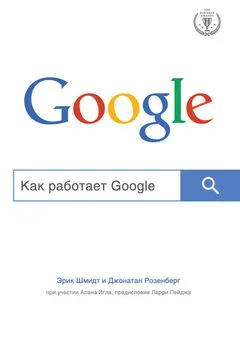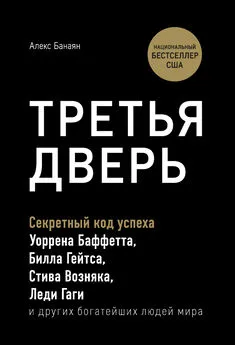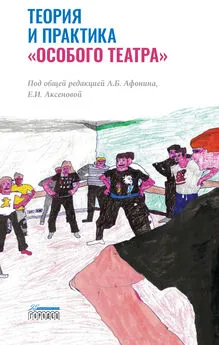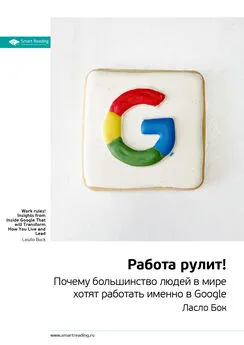Ласло Бок - Работа рулит! Почему большинство людей в мире хотят работать именно в Google
- Название:Работа рулит! Почему большинство людей в мире хотят работать именно в Google
- Автор:
- Жанр:
- Издательство:Манн, Иванов и Фербер
- Год:2015
- Город:Москва
- ISBN:978-5-00057-668-7
- Рейтинг:
- Избранное:Добавить в избранное
-
Отзывы:
-
Ваша оценка:
Ласло Бок - Работа рулит! Почему большинство людей в мире хотят работать именно в Google краткое содержание
Работа рулит! Почему большинство людей в мире хотят работать именно в Google - читать онлайн бесплатно полную версию (весь текст целиком)
Интервал:
Закладка:
73.Einstein at the Patent Office. Swiss Federal Institute of Intellectual Property, по состоянию на 21 апреля 2011 г. // https://www.ige.ch/en/about-us/einstein/einstein-at-the-patent-office.html.
74.Corporate Executive Board, Corporate Leadership Council, HR Budget and Efficiency Benchmarking Database, Arlington VA, 2012.
75.Pui-Wing Tam, Delaney K. Google’s Growth Helps Ignite Silicon Valley Hiring Frenzy // Wall Street Journal, 2005. November 23 // http://online.wsj.com/article/SB113271436430704916.html; личные беседы.
76.Gladwell M. The Talent Myth: Are Smart People Overrated? // The New Yorker, 2002. July 22 // http://www.newyorker.com/archive/2002/07/22/020722fa_fact?currentPage=all.
77.Warning: We Brake for Number Theory // Google (official blog), 2004. July 12 // http://googleblog.blogspot.com/2004/07/warning-we-brake-for-number-theory.html.
78.Google Hiring Experience // Oliver Twist (blog), по состоянию на 17 января 2006 г. // http://google-hiring-experience.blogspot.com/.
79.How Tough Is Google’s Interview Process // Jason Salas’ WebLog (blog), 2005. September 5 // http://weblogs.asp.net/jasonsalas/archive/2005/09/04/424378.aspx.
80.Самые ранние исследования по этой теме были опубликованы в 1958 г. Б. М. Спрингбеттом из Университета Манитобы. Хотя выборка была очень мала, ученый обнаружил, что решения обычно принимаются в первые четыре минуты собеседования. Дальнейшие исследования: Ambady N., Rosenthal R. Thin Slices of Expressive Behavior as Predictors of Interpersonal Consequences: A Meta-Analysis // Psychological Bulletin, 1992. No. 2. Pp. 256–274; Barrick M. R., Swider B. W., Stewart G. L. Initial Evaluations in the Interview: Relationships with Subsequent Interviewer Evaluations and Employment Offers // Journal of Applied Psychology, 2010. Vol. 95, No. 6. Pp. 1163–1172; Barrick M. R., Dustin S. L., Giluk T. L. et al. Candidate Characteristics Driving Initial Impressions During Rapport Building: Implications for Employment Interview Validity // Journal of Occupational and Organizational Psychology, 2012. Vol. 85, No. 2. Pp. 330–352.
81.Prickett J. T., Gada-Jain N., Bernieri F. J. The Importance of First Impressions in a Job Interview. Работа представлена на ежегодной встрече Психологической ассоциации Среднего Запада, Чикаго, май 2000 г.
82.Confirmation bias // http://en.wikipedia.org/wiki/Confirmation_bias# CITEREFPlousi993, приводятся цитаты из работы: Плаус С. Психология оценки и принятия решений. — М.: Филинъ, 1998.
83.Gladwell M. The New-Boy Network // The New Yorker, 2000. May 29. Pp. 68–86.
84.Munk N., Oliver S. Think Fast! // Forbes, 1997. Vol. 159, No. 6. Pp. 146–150. Gilhooly K. J., Murphy P. Differentiating Insight from Non-Insight Problems // Thinking & Reasoning, 2005. Vol. 11, No. 3. Pp. 279–302.
85.Schmidt F. L., Hunter J. E. The Validity and Utility of Selection Methods in Personnel Psychology: Practical and Theoretical Implications of 85 Years of Research Findings // Psychological Bulletin, 1998. Vol. 124, No. 2. Pp. 262–274. Значения r 2 , приведенные в данной главе, рассчитаны на основе коэффициентов корреляции с поправками ( r ).
86.Rosser P. The SAT Gender Gap: Identifying the Causes. Washington, DC: Center for Women Policy Studies, 1989.
87.Long A. Survey Affirms Pitzer Policy Not to Require Standardized Tests // The Student Life, 2014. February 28.
88.McDaniel M. A., Whetzel D. L., Schmidt F. L., Maurer S. D. The Validity of Employment Interviews: A Comprehensive Review and Meta-Analysis // Journal of Applied Psychology, 1994. Vol. 79, No. 4. Pp. 599–616; Wiesner W. H., Cronshaw S. F. A Meta-Analytic Investigation of the Impact of Interview Format and Degree of Structure on the Validity of the Employment Interview // Journal of Occupational Psychology, 1998. Vol. 61, No. 4. Pp. 275–290.
89.Как и все хорошие качества, добросовестность, доведенная до абсурда, становится вредна, превращаясь из тщательного планирования, целеполагания и упорства в окостенелость и компульсивный перфекционизм. Пока что мы не встречались с подобной проблемой, однако планируем уделить ей внимание в будущем.
90.Maslow A. H. The Psychology of Science: A Reconnaissance. New York: Joanna Cotler Books, 1966. P. 15.
91.Каждый интервьюер присуждал кандидату баллы от 0,0 до 4,0, а потом проводилось усреднение для получения единого балла. 3,0 номинально означал, что кандидата следует пригласить на работу, но на практике почти все нанятые имели балл от 3,2 до 3,6. Среднего балла 4,0 не получал никто и никогда.
92.Smith D. Desmond Tutu Attacks South African Government over Dalai Lama Visit // Guardian, 2011. October 4 // http://www.theguardian.com/world/2011/oct/04/tutu-attacks-anc-dalai-lama-visa.
93.Видео можно посмотреть здесь: http://www.youtube.com/watch?v=97bZu-tXLq4.
94.Dalberg J. E. E. Lord Acton, Letter to Bishop Mandell Creighton, April 5, 1887 // Historical Essays and Studies, eds. John Neville Figgis and Reginald Vere Laurence. London: Macmillan, 1907. P. 504.
95.Discovering Psychology with Philip Zimbardo, PhD, updated edition, Power of the Situation, 10 минут 59 секунд с начала видео // http://www.learner.org/series/discoveringpsychology/19/e19expand.html.
96.Smith R. N. Ron Nessen. Gerald R. Ford Oral History Project // http://geraldrfordfoundation.org/centennial/oralhistory/ron-nessen/.
97.SciTech Tuesday: Abraham Wald, Seeing the Unseen. Сообщение Энни Тете, координатора по естественным наукам, технологиям, инженерному делу и математике в Национальном музее Второй мировой войны. См. блог музея, 13 ноября 2012 г.: http://www.nww2m.com/2012/11/scitech-tuesday-abraham-wald-seeing-the-unseen/. Репринт работы Уолда можно найти здесь: http://cna.org/sites/default/files/research/0204320000.pdf.
98.«Кот-юрист», lawyercat — так на гугловском сленге называют трудолюбивых и зорких гуглеров из юридической службы. И да, гуглеры часто сопровождают фотографией кота (в пиджаке, галстуке и тугом белом воротничке) внутренние дискуссии, которые могут завернуть на покрытую мраком территорию профессиональных таинств.
99.Our New Search Index: Caffeine. Google (официальный блог), 2010. June 8 // http://googleblog.blogspot.com/2010/06/our-new-search-index-caffeine.html.
100.Time to Think. 3M // http://solutions.3m.com/innovation/en_US/stories/time-to-think.
101.Tate R. Google Couldn’t Kill 20 Percent Time Even If It Wanted To // Wired, 2013. August 21 // http://www.wired.com/business/2013/08/20-percent-time-will-never-die/.
102.Babcock L., Laschever S., Gelfand M., Small D. Nice Girls Don’t Ask // Harvard Business Review, October 2003 // http://hbr.org/2003/10/nice-girls-dont-ask/. Babcock L., Laschever S. Women Don’t Ask: Negotiation and the Gender Divide. Princeton, NJ: Princeton University Press, 2003.
103.Employee Engagement: What’s Your Engagement Ratio? Gallup Consulting, Employment Engagement Overview Brochure, November 17, 2013.
104.Macey W. H., Schneider B. The Meaning of Employee Engagement // Industrial and Organizational Psychology, 2008. Vol. 1, No. 1. Pp. 3–30.
105.Serrat O. The Travails of Micromanagement. Washington, DC: Asian Development Bank, 2011 // http://digitalcommons.ilr.cornell.edu/cgi/viewcontent.cgi?article=1208&context=intl.
106.Бах Р. Иллюзии, или Приключения Мессии, который Мессией быть не хотел. Киев: София, 2014.
107.Pulakos E. D., O’Leary R. S. Why Is Performance Management Broken? // Industrial and Organizational Psychology, 2011. Vol. 4, No. 2. Pp. 146–164.
108.Results of the 2010 Study on the State of Performance Management. Sibson Consulting, 2010 // http://www.sibson.com/publications/surveysandstudies/2010SPM.pdf.
109.Ramirez J. C. Rethinking the Review // Human Resource Executive HREOnline, 2013. July 24 // http://www.hreonline.com/HRE/view/story.jhtml?id= 534355695.
110.Locke E. A., Latham G. P. A Theory of Goal Setting of Task Performance. Upper Saddle River, NJ: Prentice Hall, 1990.
111.Bezuijen X. M. van Dam K., van den Berg P. T., Thierry H. How Leaders Stimulate Employee Learning: A Leader-Member Exchange Approach // Journal of Occupational and Organizational Psychology, 2010. Vol. 83, No. 3. Pp. 673–693; Blatt B., Confessore S., Kallenberg G., Greenberg L. Verbal Interaction Analysis: Viewing Feedback Through a Different Lens // Teaching and Learning in Medicine, 2008. Vol. 20, No. 4. Pp. 329–333.
112.Pulakos E. D., O’Leary R. S. Why Is Performance Management Broken? // Industrial and Organizational Psychology, 2011. Vol. 4, No. 2. Pp. 146–164.
113.Для всех гуглеров, кто это читает: использование мема одобрено Полом Коэном, Колином Макмилленом и GCPA. Что происходит на Memegen, там и остается!
114.Ashford S. J. Feedback-Seeking in Individual Adaptation: A Resource Perspective // Academy of Management Journal, 1986. Vol. 29, No. 3. Pp. 465–487; Atwater L. E., Brett J. F., Charles A. C. Multisource Feedback: Lessons Learned and Implications for Practice // Human Resource Management, 2007. Vol. 46, No. 2. Pp. 285–307; Azevedo R., Bernard R. M. A Meta-Analysis of the Effects of Feedback in Computer-Based Instruction // Journal of Educational Computing Research, 1995. Vol. 13, No. 2. Pp. 111–127; Baron R. A. Criticism (Informal Negative Feedback) As a Source of Perceived Unfairness in Organizations: Effects, Mechanisms, and Countermeasures // in Justice in the Workplace: Approaching Fairness in Human Resource Management (Applied Psychology Series), ed. Russell Cropanzano. Hillsdale, NJ: Lawrence Erlbaum Associates, Inc., 1993. Pp. 155–170; Fedor D. B., Davis W. D., Maslyn J. M., Mathieson K. Performance Improvement Efforts in Response to Negative Feedback: The Roles of Source Power and Recipient Self-Esteem // Journal of Management, 2001. Vol. 27, No. 1. Pp. 79–97; Bolton G. E., Katok E., Ockenfels A. How Effective Are Electronic Reputation Mechanisms? An Experimental Investigation // Management Science, 2004. Vol. 50, No. 11. Pp. 1587–1602. Dellarocas C. The Digitization of Word of Mouth: Promise and Challenges of Online Feedback Mechanisms // Management Science, 2003. Vol. 49, No. 10. Pp. 1407–1424.
Читать дальшеИнтервал:
Закладка:










